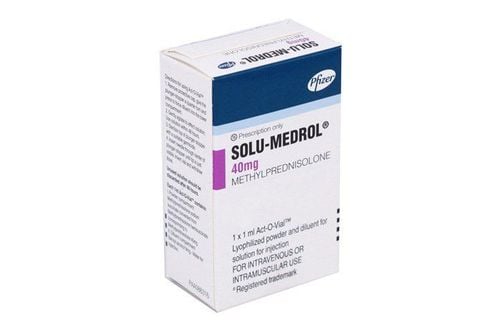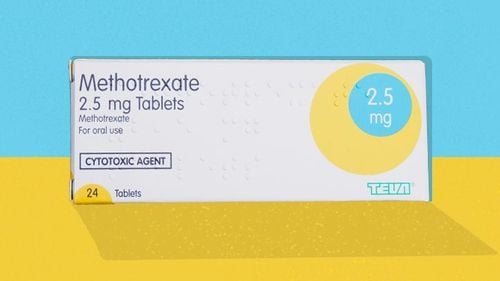This is an automatically translated article.
Diagnosing Lupus is difficult because the symptoms are often vague. Unlike some other diseases, it is necessary to combine many different laboratory tests to diagnose Lupus and monitor the disease, as well as evaluate the effectiveness of treatment.
1. Antinuclear Antibody (ANA)
This is an antibody against the nucleus of cells, present in most people with active lupus. Doctors often use the ANA test as a screening tool. In addition, observing patterns of antibodies also helps to identify the specific disease the examiner has. As a result, this blood test to diagnose lupus also helps determine the right treatment.
Limitations of the test: Although almost all people with lupus have antibodies, a positive result does not necessarily indicate lupus. Several other diseases, or even a small number of people without lupus and similar autoimmune disorders, have also tested positive. Therefore, ANA test results alone are not sufficient to diagnose lupus. Doctors must consider the results of this test in conjunction with other criteria.
2. Antiphospholipid antibodies (APLs)
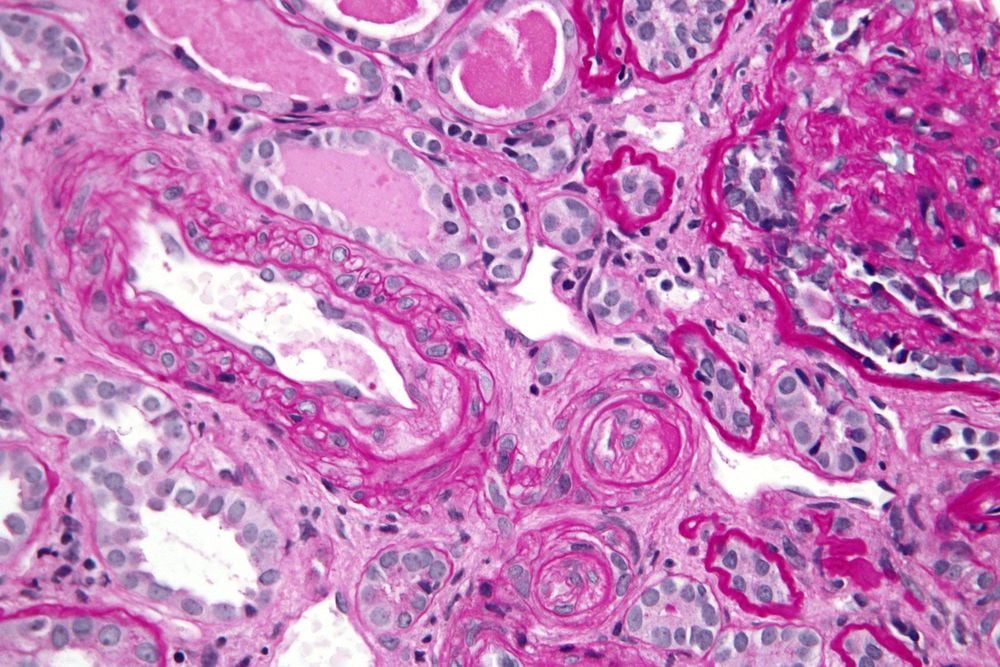
Kháng thể kháng phospholipid
This is a type of antibody against phospholipids. APLs exist in 60% of people with lupus, so their presence can help confirm the diagnosis. Positive results also serve to identify certain risks that need to be monitored and treated prophylactically in women with lupus. These risks include: blood clots, miscarriage, or premature birth.
Limitations of the test: APLs can also be present in people who do not have lupus. Therefore, performing this test alone is not sufficient to diagnose lupus.
3. Resistance to Sm
This is an antibody against Sm - a specific protein found in the nucleus of cells. Sm is present in 30% of people with lupus and is rarely found in people without lupus. Therefore, a positive Anti-Sm test result can help confirm the diagnosis of lupus.
Limitations of the test: Only 30% of people with lupus have a positive Anti-Sm test. So, relying on this blood test alone would miss out on most other lupus patients (the other 70%).
4. Resistance to dsDNA
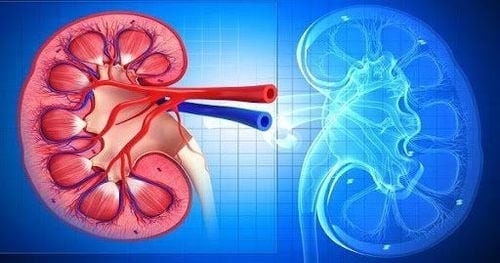
Kháng dsDNA có thể cho thấy nguy cơ viêm thận lupus cao
This is a protein that directly opposes double-stranded DNA (DNA is the material that makes up the body's genetic code).
About 75 - 90% of people with lupus have a positive anti-dsDNA test. The test is also very specific for lupus. Therefore, a positive result can be useful to confirm the diagnosis.
For many patients, the level of antibodies increases as the disease progresses. So your doctor can also use this lupus blood test to measure how active the disease is.
In addition, the presence of anti-dsDNA also indicates a higher risk of lupus nephritis, it is necessary for the doctor to monitor the kidneys.
Limitations of the test: Up to 25% of people with lupus do not have dsDNA resistance. Therefore, a negative test result does not mean that the patient does not have lupus.
5. Ro(SSA) and La(SSB) resistance
These are two antibodies that are often found together, specifically against the protein ribonucleic acid (RNA).
Anti-Ro(SSA): Present in 24 - 60% of lupus patients and also found in 70% of people with an autoimmune disorder Sjögren; La resistance (SSB): Present in 35% of people with Sjögren's syndrome. That's why this test can be useful for diagnosing one of these autoimmune disorders. Both antibodies are also linked to neonatal lupus - a rare but dangerous problem in newborns. Anti-Ro(SSA) and anti-La(SSB) in pregnant women warn doctors to monitor the fetus.
Limitations of the test: Like other antibody blood tests, many people with lupus still have negative results. Therefore, a single test cannot be used to diagnose Lupus. In addition, these two antibodies are more often indicative of Sjögren's syndrome than lupus.
6. C-reactive protein (CRP)
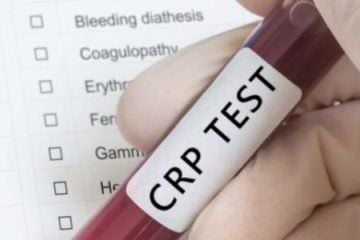
Xét nghiệm CRP có thể chỉ ra bệnh lupus
CRP is a protein in the body that signals signs of inflammation. This blood test can show active lupus and monitor inflammation, as well as show disease progression or response to treatment.
Limitations of the test: Since there are many causes for an elevated CRP result (eg, infection), the test is neither diagnostic nor able to distinguish lupus flare from infection. In addition, CRP levels do not directly correlate with lupus activity. So this test is also not really useful for monitoring the disease.
7. Complement protein (complement)
Complementary proteins are involved in inflammation. Complement levels are often low in people with existing medical conditions, especially kidney disease. So your doctor may use this test to evaluate or monitor the progress of your disease.
Limitations of the test: Like other blood tests, complement protein must be combined with clinical signs and additional findings to make a diagnosis of lupus.
8. Erythrocyte sedimentation rate (ESR)
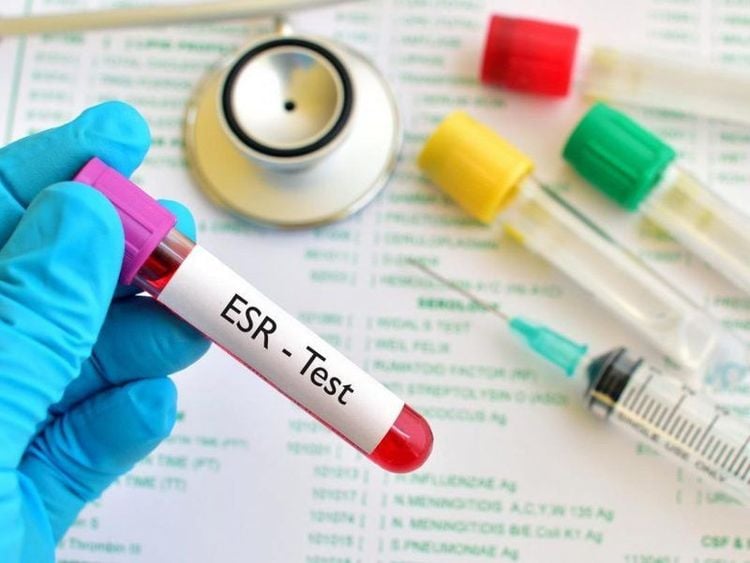
Xét nghiệm ESR đo tốc độ các tế bào hồng cầu
The ESR test measures how quickly red blood cells move down the test tube. When there is inflammation, blood proteins stick together and fall off more quickly. The faster the blood cells settle, the more severe the inflammation.
Erythrocyte sedimentation rate (ESR) is considered a marker of inflammation, which may indicate active lupus. This blood test is used to monitor inflammation and changes in disease or response to treatment.
Limitations of the test: Like CRP, ESR is not specific for lupus. There are many other causes of a positive result, including infection, so the test is not diagnostic and does not differentiate lupus flare from infection. In addition, ESR levels also do not directly correlate with lupus disease activity, making them not useful for monitoring the disease.
9. Complete blood count (CBC)
This is a test that measures the levels of different blood cells. Abnormalities in white and red blood cell counts can occur in people with lupus, being treated for lupus, or infections.
For example, a low white blood cell count or low platelet count is found in about 50% of people with lupus. Your doctor may use a CBC blood test to monitor for these potentially serious problems.
Limitations of the test: Many other medical conditions can cause blood cell count abnormalities. Therefore, the single test is not specific for the diagnosis of lupus.
10. Chemical test
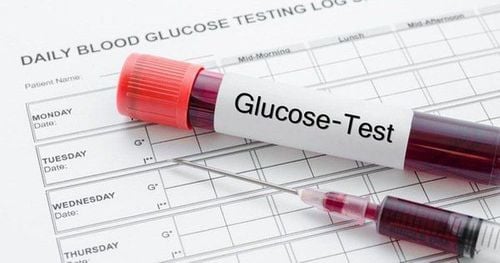
Xét nghiệm lượng đường trong máu
This is a test to evaluate kidney and liver function. The test provides information about electrolytes, blood sugar, cholesterol, and triglycerides.
Abnormal results may indicate complications from lupus, or side effects of treatments for kidney disease, high blood sugar, high cholesterol, and liver disease.
11. Glomerular filtration rate
The glomerular filtration rate measures the efficiency of the blood filtering to remove waste by the kidneys. Glomerular filtration rate results were also calculated based on creatinine level, age, sex, race, and weight. The test shows the stage of the examiner's kidney disease.
12. Urine Tests for Lupus

Xét nghiệm nước tiểu xem xét ảnh hưởng của lupus đối với thận
In addition to blood tests that diagnose lupus and monitor the disease, doctors also use urine tests to look at the effects of lupus on the kidneys. These tests include:
Urine protein / Microalbuminuria: Measures the amount of protein (or albumin) in the urine. Even a small amount can indicate a risk of kidney disease; Creatinine clearance: Measures the effectiveness of the blood filtering to remove waste by the kidneys. The test is conducted on urine collected over a 24-hour period; Urinalysis: Urinalysis to screen for kidney disease. The presence of proteins, red blood cells, white blood cells, and embryonic cells can all indicate kidney disease. In summary, it is not possible to diagnose Lupus with a single test. When certain clinical criteria are met, laboratory blood and urine tests can help confirm a diagnosis of lupus, as well as monitor disease activity and response to treatment.
To register for examination and treatment at Vinmec International General Hospital, you can contact the nationwide Vinmec Health System Hotline, or register online HERE.




